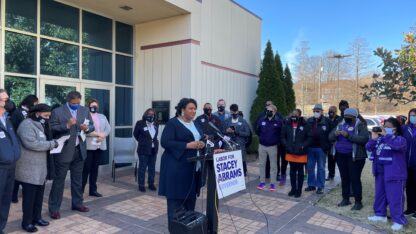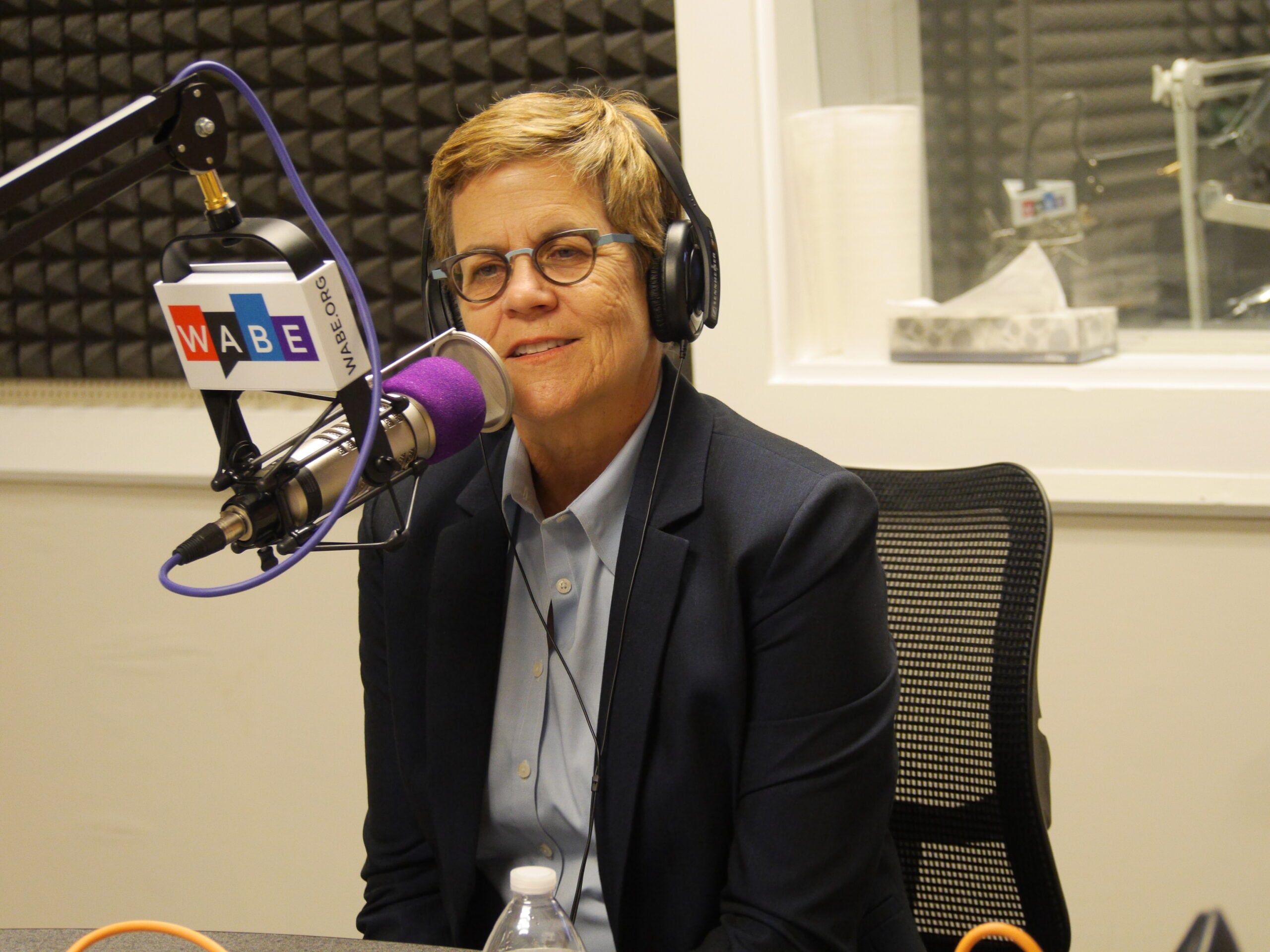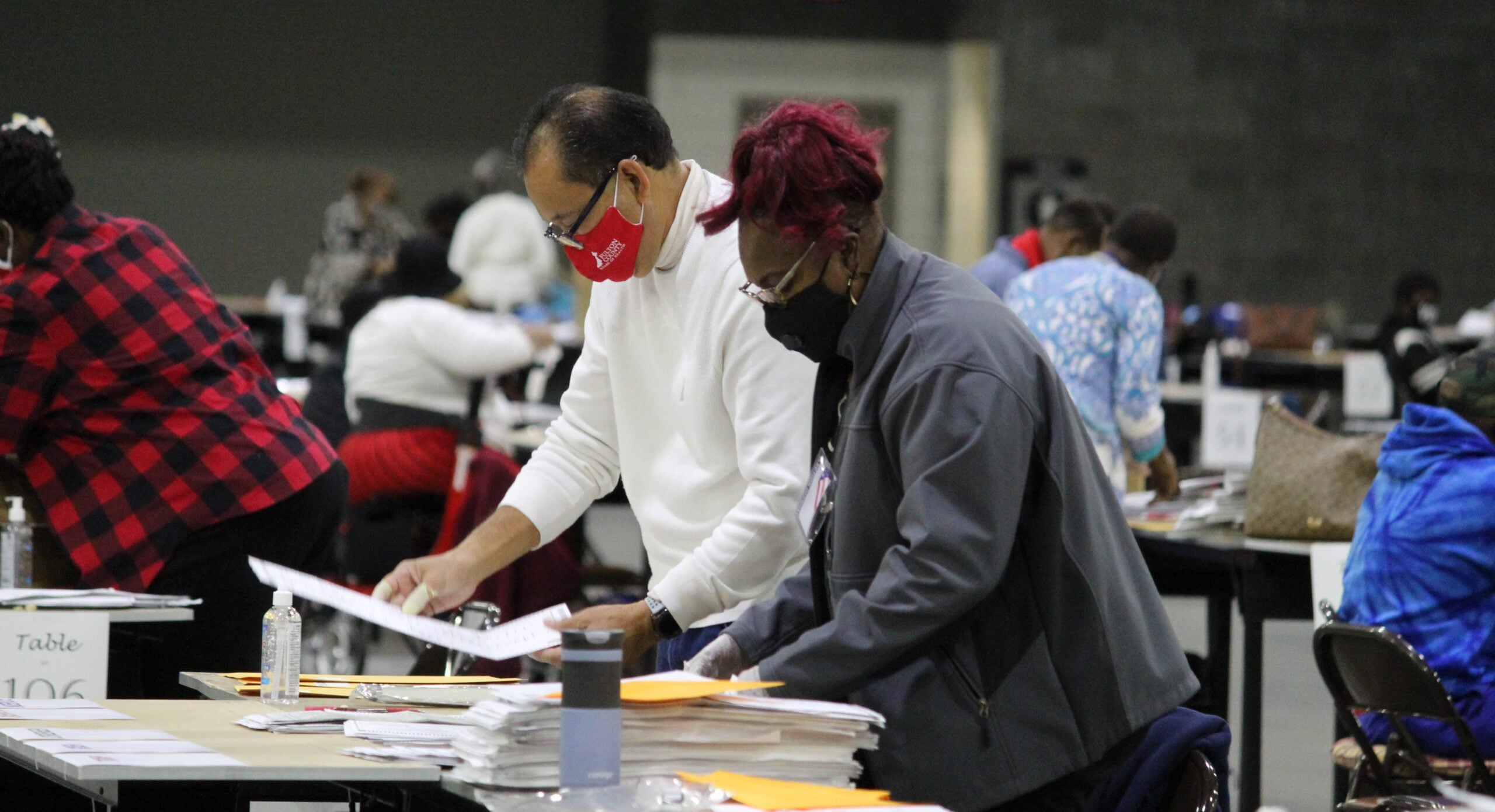This coverage is made possible through Votebeat, a nonpartisan reporting project covering local election integrity and voting access. The article is available for reprint under the terms of Votebeat’s republishing policy.
Most of Georgia had a relatively easy voting experience Tuesday, largely due to the record number of absentee and early votes cast, and where there were issues, they seemed to be resolved quickly.
Secretary of State Brad Raffensperger said at a Wednesday press conference that having paper ballots was a reassurance to voters. Some have expressed concern that the printed ballot, which is scanned into the machine only, includes a digital code that cannot be read by the human eye.
“This election puts to rest the debates enflamed by those in our state, or not in our state, who have looked to sow doubt about our system and those who have wrongly claimed there is a lack of access to voting,” said Raffensperger.
Gabriel Sterling in the secretary of state’s office said there are still tens of thousands of votes remaining to be counted in the state as of Thursday afternoon, but that may not include all of the overseas military and provisional ballots. Sterling said that with the margins this close, especially in the presidential election, he anticipates that every additional ballot will be needed to determine the outcome.
“Fast is great, and we appreciate fast. We more appreciate accuracy,” said Sterling. “Accuracy is going to be the bedrock upon which people will believe the outcomes of these elections, either on the winning side or the losing side.”
Aunna Dennis, executive director of Common Cause Georgia, echoed the need for every vote to be counted up until the deadline. Voters have until Friday to correct any mistakes on their mail-in ballots, a process known as curing.
“We do know that we have some lingering ballots and votes out there that need to be counted,” said Dennis.
There were some minor glitches in a few precincts that held up voting Tuesday.
Morgan and Spalding counties both had technical problems when polls opened that resulted in voters having to wait or cast paper provisional ballots.
The issue affected all of the polling places in Spalding County, which has about 44,000 registered voters and is located about 40 miles south of Atlanta, but they were mostly resolved by later Tuesday morning.
Superior Court Judge W. Fletcher Sams extended voting in Spalding County until 9 p.m. to give voters two extra hours to make up for the time lost in the morning.
The glitch was caused by a software update the voting system vendor loaded onto the poll pads Monday night, according to election officials in Spalding County.
The problem was likely caused by a dataset that had been uploaded, said Sterling, who is in charge of implementing the new voting system for the secretary of state’s office.
The poll pads are used to check in voters and to program a key card that the voter then inserts into the voting machine to bring up their corresponding ballot.
The glitch prevented the cards from being loaded with voters’ information. Some poll managers in Morgan County were able to remedy the situation by manually programming the cards for each voter, but this resulted in delays for some.
The voting machines are made by Dominion Voting Systems and the poll pads by a company called KnowInk. The machines were installed and used statewide for the first time ever this election cycle.









